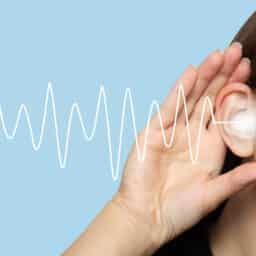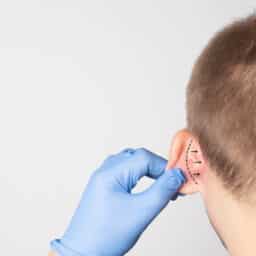What to Know About the Different Types of Hearing Devices
Most people immediately think of hearing aids when it comes to treating hearing loss. They’re the most effective solution and nearly 29 million Americans could benefit from using them, but they are not the only option. From everyday amplification tools to specialized support systems, understanding these options can help you make informed decisions that align…
The Path of Sound: How We Hear and What Can Get in the Way

Hearing is something we often take for granted. It feels effortless—like flipping a switch. But in reality, sound takes a remarkable journey before it reaches your brain. Understanding how sound moves and what can interrupt it is key to recognizing hearing loss and taking steps to address it. How Sound Travels to Your Brain Think…
Seven Signs It’s Time To See a Hearing Specialist

Hearing health is something many people forget about until they start to notice signs of hearing loss. While it’s easy to push it aside, prioritizing regular checkups with a hearing specialist is key to detecting issues early and preventing further damage where possible. Let’s look at seven signs that indicate it’s time to schedule an…
Hearing Aids for Babies

The Early Hearing Detection and Intervention (EHDI) guidelines, implemented in the year 2000, sought to ensure all children get the help they need for their hearing loss. The goal of this program is for all babies to be screened for hearing loss no later than one month of age; if a baby does not pass…
What to Know About Ear Stroke
Sudden sensorineural hearing loss (SSHL), often referred to as an “ear stroke,” is a medical condition characterized by a sudden loss in hearing, which can affect one or both ears. This hearing loss can occur abruptly or occur gradually over the course of a few days. Without timely treatment, ear strokes can result in either…
Driving with Hearing Loss: Tips for Staying Safe and Confident on the Road

Hearing loss affects roughly one in every ten people in the United States, and receiving this diagnosis can bring up concerns about how it might impact your day-to-day life, particularly your independence. One of the most common worries is driving—an activity that relies heavily on hearing and vision. The good news is that with some…
Understanding the Inner Ear and Its Effect on Hearing and Balance

The inner ear, though small, is a complex system responsible for maintaining hearing and balance. Let’s delve into the anatomy of the inner ear to understand better how damage to it can lead to hearing loss and balance disorders. The Auditory and Balance Systems The inner ear is made up of two systems: auditory and…
Tips For Talking on the Phone with Hearing Loss
Communicating on the phone can be challenging for individuals with hearing loss. Nearly one in 10 people in the U.S. have some form of hearing loss. However, with the right strategies and tools, phone conversations can be made easier. Read on for some helpful tips for talking on the phone with hearing loss and learn…
Myths vs. Facts: Dispelling Common Misconceptions About Hearing Aids
Nearly 28.8 million Americans could benefit from using hearing aids. However, many do not take advantage of this opportunity due to misconceptions about the impact hearing aids can have on their lives. Let’s explore some common myths about hearing aids and uncover the truth behind them. Myths vs. Reality Myth 1: Only the elderly need…
What to Know About Hearing Loss Surgeries

Nearly 30 million individuals aged 12 or older are affected by hearing loss in the United States. Depending on the type of hearing loss, treatment options may vary. In some cases, surgery can be used to restore hearing, implant cochlear devices or repair parts of the ear. Let’s consider some conditions that may require…


